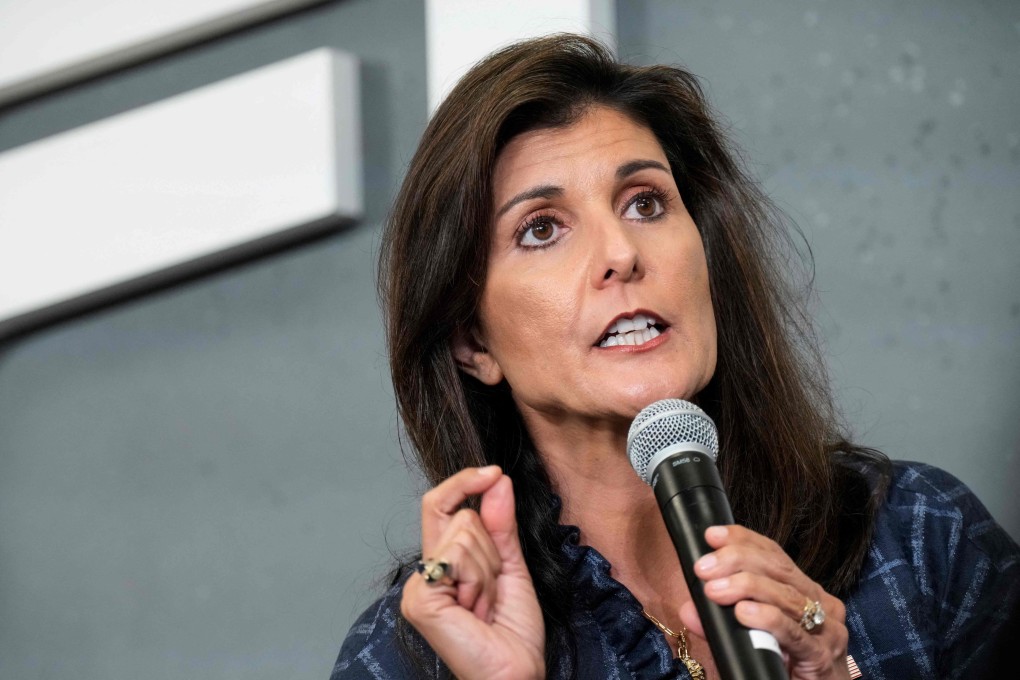US presidential candidate Nikki Haley seeks major changes in China policy
- ‘Communist China is the greatest threat to American security and prosperity by far,’ says the Republican, who was UN ambassador under Donald Trump
- Her remarks come after years of hawkish comments about Beijing

Nikki Haley, a former US ambassador to the UN who is now running for the Republican presidential nomination, vowed on Tuesday to bring about a “sea change” in US policy towards China and do “whatever it takes” to protect the American people – including a “full-on decoupling” if necessary.
Speaking on the future of US-China policy at the American Enterprise Institute, a Washington-based think tank, Haley said responding to the threat of China was a central tenet of presidential leadership.
“Communist China is the greatest threat to American security and prosperity by far,” she said. “We need a leader who will rally our people to meet this threat on every single front.”
Haley highlighted China’s role in the production of fentanyl, an addictive painkiller fuelling America’s opioid crisis, and said she would push Congress to revoke China’s permanent normal trade relations status until the flow of fentanyl into the US stops.
Congress granted Beijing the status in 2000 as the US supported China’s entrance into the World Trade Organization, which Haley said on Tuesday was based on a “disastrously false” assumption that it would make China more free and open.